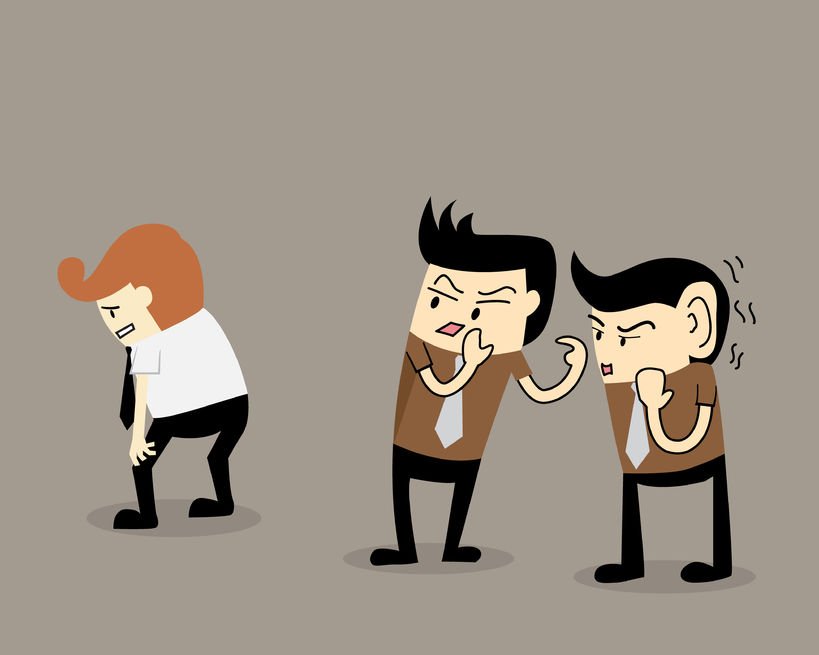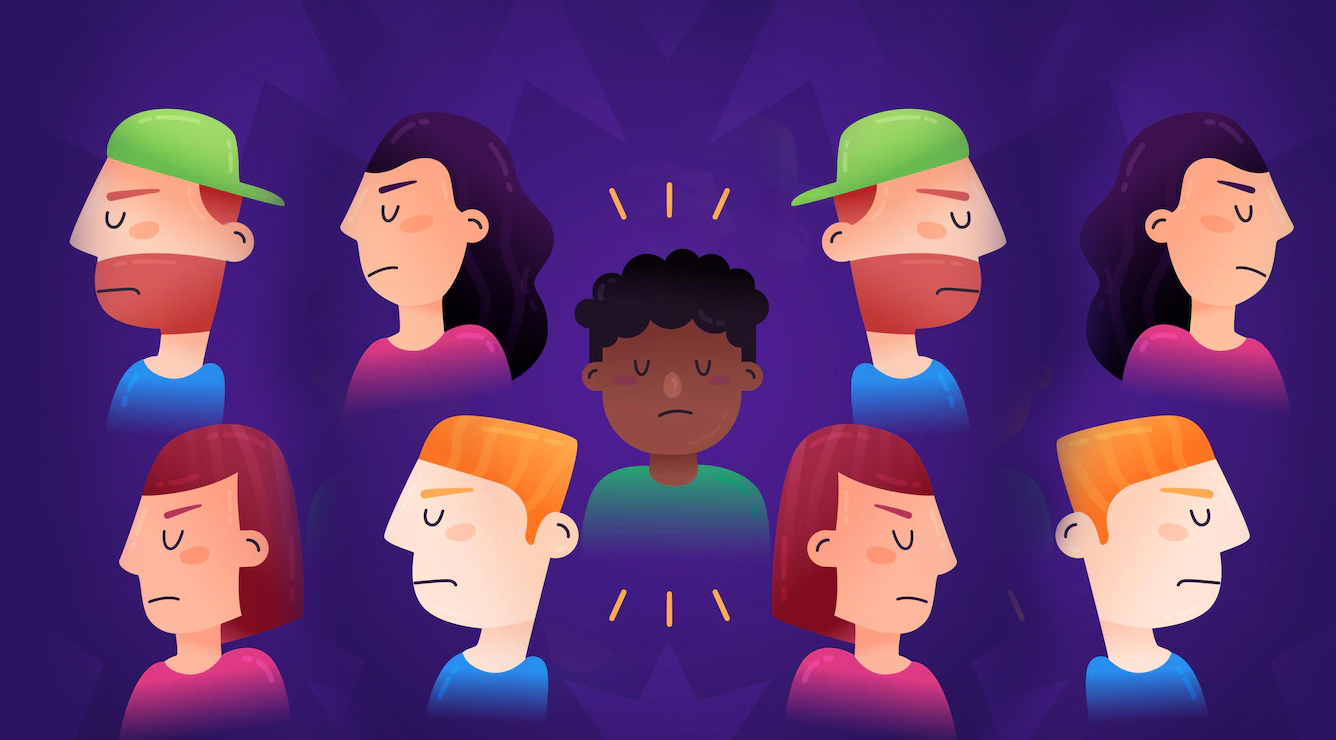
The teenage years may be the most challenging. Your child develops their personality and identity, which will follow them for the rest of their life. During this era, it is essential to be kind to your children and offer them the support and guidance they need for the best results in the future.
However, if you are a parent, teacher, or caregiver, how your child will act is not always up to you. Society plays a significant role in your teenager’s development, so it is as important as the home environment. Some teenagers may become ostracized due to social groups.
Let’s examine the meaning of ostracized and see how you can help your teen overcome this issue.
In this article
- What Does “Ostracize” Mean?
- Definition of Ostracized
- Different Stages of Ostracism
- How Ostracism Affects Teens
- Why Are Ostracized Teens Common?
- How to Recognize Your Teen Is Being Ostracized
- Pay Attention to Your Child’s Mood
- Detect Isolation
- Discuss Interests
- Talk About Social Interactions
- Detect Physical Symptoms
- How to Help Ostracized Teens
You’re probably here because you’ve heard the term “ostracized” but aren’t acquainted with the meaning. This term applies to people whom social groups have rejected or isolated for various reasons. Ostracized teens may experience bullying in larger groups, leading to poorer self-esteem and mental health.
Such teens may also isolate themselves from social gatherings, leading to social anxiety, low confidence, and fear. Other teenagers or groups may reject another teen due to physical and mental differences. For instance, if one has different interests or opinions than the group, that group might ostracize them.

In ancient Greece, ostracism implied expelling a citizen that could harm the city’s political state. If someone rebelled against society, it would isolate them for at least ten years. However, the definition has changed in the modern world, but the meaning has stayed similar.
Today, ostracized means expelled or isolated from society due to differences. It mostly appears in school when children experience bullying.
Psychology has thoroughly examined ostracism examples in young people and adults while following individuals’ responses. In most cases, a person will go through three stages after an event that defines ostracism. Here’s what they are, according to Williams.
The reflexive stage is the initial response to an event that implies ostracism. For instance, if someone bullies your teen, their first reaction is this stage.
People can act differently in these scenarios; the emotions may vary from anger to sadness. However, in most cases, the victim will feel pain, resulting in further issues.
The reflective stage follows the reflexive, making it the subsequent response. During this stage, an individual will rationally think and assess the situation while creating coping mechanisms according to the emotions.
When one feels fear or threat, they create coping mechanisms to protect their vulnerabilities. However, these coping mechanisms may be more extreme and less rational in teenagers.
After a prolonged period, the resignation stage comes into play. If an individual hasn’t found helpful coping mechanisms and still feels the pain from the initial threat, they might surrender to the feeling of helplessness, unworthiness, dissociation, etc. That is when the most trouble begins.
Ostracized teenagers may develop mental health issues, such as depression and anxiety, and isolate themselves from social interactions due to the pain.

In all cases, ostracism affects teens negatively, leading to severe issues that may impact the teen’s future. For instance, an ostracized teen may develop mental health issues, affecting their quality of life. They are at more risk of developing mental health conditions than other teenagers.
Ostracized teens may have lower self-esteem, impacting their social engagement and academic performance. Moreover, ostracism can affect academic success and motivation if they don’t detect and deal with it on time.
Some teenagers may be prone to engaging in risky activities to “blend in” with social groups. They can try to change their identity to please the masses while losing their sense of self. Ostracism can severely impact individuals and change how they view society and life.
In the modern world, everyone has the right to speak their mind, even if what they say might harm others. With the widespread use of social media platforms, ostracism has become a bigger problem than ever. Teenagers face cyberbullying, negative comments, and other threats they may perceive as ostracism.
Although some people may think that making jokes on another’s account is harmless, some might take it personally. Moreover, constantly commenting on one’s appearance or mental capabilities won’t positively impact that person.
Bullying in school has also been on the rise. Although many try to introduce their children to inclusivity, some simply don’t want to accept different appearances or behaviors, which is why ostracism occurs.
Since ostracism may lead to more severe problems, it is essential to recognize the signs in your teen and act accordingly. You can boost their self-esteem and ease the pain by detecting the behavior. Below, you will see essential tips for detecting ostracized behavior in your teenager.
You know your child best, so if you detect any changes in their mood, it is time to talk with them. They may seem more anxious than before while avoiding talking to you.
Moreover, they may be sad and start shifting their mood every once in a while. If you feel something is wrong, you should talk to your child to detect potential ostracism.

Although most teens like spending their time in their rooms and having some privacy, overdoing it may be a sign of ostracism.
If they have been in painful situations, you might have to force them to leave their room and spend time with you. Moreover, if your child used to love social interactions and now doesn’t want to leave the house, it may be a sign of ostracism.
Every teen wants to do different things and may change interests daily. However, if a child loses interest in everything they have previously loved, it might be a clear symptom.
Ostracized teenagers may stop feeling motivated and withdraw, leading to minor to no interest in other activities. Additionally, if your child’s performance in school has dropped, they may be in trouble.
While in school, every teen will talk to their peers and have exciting talks or events worth mentioning. However, if your child has nothing to say or simply says everything is fine with their peers, they may not be honest.
Some children avoid telling their parents (or anyone else) about bullying, but you can easily detect it from your teen’s behavior and social interactions. It may be a sign of ostracism if they are scared to talk to their peers or avoid spending time with them.
If ostracism affects mental health, it will affect physical health as well. Your child may display apparent physical symptoms, such as appetite loss, poor posture, or difficulty sleeping, a sign of a more significant mental issue.
Mental and physical health go hand in hand, so if your child has been acting differently, it’s time to use some of the methods below.
Once you detect ostracism in your teen, you can help them by following the tips below. However, every child differs, and you should find a method that best suits your teen’s needs.
Building better social skills is essential for preventing and dealing with ostracism. After all, the whole problem begins with society. To help your child work on social skills, introduce them to peers with similar interests or bring them to events where they can make new friends.
Social media can negatively impact your child’s social skills and personal relationships, so cutting online time may contribute to better social performance. You can keep track of their online activity and restrict access by using advanced parental control apps such as Wondershare FamiSafe.

Different physical and mental activities can help your child create healthy coping mechanisms and heal their pain. For instance, sports can boost your child’s mental health and build self-esteem. You can also try engaging in social events to create a positive mindset in your teen.
However, involve them in activities they are comfortable with and respect their boundaries. Don’t force them into sports or social events if they aren’t ready to take that step. Instead, you can recommend activities and let them choose the one they like.
After painful events that may lead to ostracism, it may be challenging to establish healthy and trustworthy relationships. It will take your child time to become open again and create a positive mindset toward others. However, if you are their caregiver, you should be their role model and be as gentle as possible until you see progress.
You can incorporate various bonding activities into your relationship to make your child feel safe around you. Once they do, they will open up and be ready to start building meaningful relationships. You can also rely on your child’s closest friends for help.
Don’t be overprotective because your child may feel too vulnerable and helpless. Even if you see signs of bullying, you should only intervene if your child asks you to or you need to help your teenager as quickly as possible.
We understand you want to protect your child from threatening scenarios, but you shouldn’t overdo it unless there’s a safety threat. Some children may take it as a joke without severe consequences. However, if you detect suspicious behavior corresponding to the symptoms above, you should take the matter into your hands.

Sometimes, your child needs unconditional love and support to endure the tough times. Be their role model and advise them on the next move. However, you should never isolate their feelings and worsen the situation. Even if the scene may not seem dangerous now, you never know what might go on in your teen’s mind.
Instead, carefully listen to what they say and remember even the minutest details to show appreciation and understanding. Your child will become more open with you and see your talks as the safe space for all their trouble while you can work on their self-esteem.
Teenagers may often feel their parents or peers misunderstand them. If your child decides to open up to you, you should always thank them for it and validate their feelings. For instance, you can tell them you understand why they feel that way and console them if needed.
Moreover, always let them know they can talk to you without fearing judgment. They will seek shelter in you and confide in you, leading to better coping and self-esteem.
There are more and more cases of ostracized teens all over the globe. Detecting the signs in your child and acting as soon as possible is critical to avoid more significant problems.
Knowing what ostracism is, how to detect the signs in your teenagers, and what to do in such scenarios will help your ostracized teen deal with the problem and boost their self-confidence. Remember to be patient and gentle with them to help them get out of a dark place.


